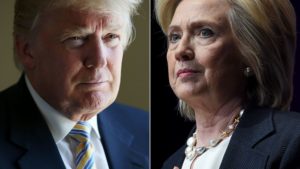My late professor, Leo Strauss, used to say that we do less violence when we view the low in the light of the high than the high in the light of the low. The local mayor may be involved in things like cleaning the streets and giving clearances for zoning. But at the heart of political office, nevertheless, there is a need to deliberate about the policies that could elicit consent and approval, for there is a strain to be fair and principled in dealing with rival groups and coming out with decisions that seem to do a decent and rough justice.
Political life will always have its center in the questions about the things that are just and unjust, right, and wrong. And so, that local mayor will partake of the work that Abraham Lincoln brought to a sublime level of the most searching reflection. We would understand far more about the vocation of that mayor if we understood that it offered a minor reflection of Lincoln’s work – far more than we would understand if we viewed Lincoln in the light of the low: as just another politician trying to arrange patronage and pubic contracts.
What brings this all back is the bafflement that has whirled about the advent of Donald Trump, and the reactions he has elicited in the most implausible places. As with one friend who has been lecturing for more than twenty years at Oxford University – and who has been for Trump all along. He well appreciates the quality of the reflection that Lincoln brought in explaining his ends and crafting the most politic means to those ends. Politicians will always be an imperfect lot; still we take the measure of them by using Lincoln as our standard for what they might be at their best.
But Donald Trump has brought no comparable level of reflection, very little beyond the mantra of “making America great again,” building a wall at the Mexican border, and risking a trade war by slapping on tariffs. My academic friend is usually the most critical essayer of texts and candidates. Why then the willingness to relax those demanding standards here? For my friend, I think it’s a reflection of his contempt for our political class, and a willingness to see things “shaken up.” But once things are shaken up, where are they supposed to land? To what ends will this shakeup be directed?
Mr. Rush Limbaugh, often so savvy in his political analysis, has been saying that Trump represents a rejection of “political correctness.” But that strikes me as quite far from the truth. Has Trump undertaken a defense of marriage against the currents of opinion generated by the courts, the media, academia, and corporations, casting as bigots anyone who would oppose same-sex marriage? In his comments on abortion, it is clear that he has hardly given any serious reflection to the subject. And on the matter of the so-called “transgendered,” he has now taken as par for the course that our “culture” need no longer respect the truths of nature that constitute us as men and women.
No, Rush Limbaugh is wrong: Trump has simply been uncivil and gross in his speech; he has run against the conventions of civility, but he has offered no challenge at all to the orthodoxies of political correctness. To take an old line: Socrates might have made himself a pest in Athens, but that doesn’t mean that all pests are Socrates.
If it came down to a choice, in November, between Donald Trump and Hillary Clinton, I can understand why some friends have been looking into real estate. . .in Malta. And yet the presence of two striking, unappealing candidates runs the risk of screening from our view the deep textures and structures in our political life.
As the reader of these columns know, the House of Representatives last September voted 248-177 to punish surgeons who kill babies who survive abortions. All 177 votes in opposition came from Democrats. Our friends in talk radio have been inflaming conservatives against Republicans in Congress as wimpish. They have far too glibly made light of the serious, principled differences that will separate the political parties.
Just what there is in the nature and dynamics of a party system that produces those systematic and principled differences, is something I might take up at a later time. But one would have to be blinded in a certain way not to notice those differences now. Even if the candidate of the Left were winsome and squeaky clean, an Administration of the Left would be unrelenting in its war to make Catholic institutions fund abortions and contraceptives and recede from any moral objections to same-sex marriage.
We would see an extension of the same drive to detach Executive orders ever more from the statutes that supply, at once, their authority – and their limits. A “rule of law,” now teetering at the very edge, would pass well over that edge, not merely disfranchising us, but diminishing us all.
Mr. Trump is a wild card, but he is likely to sign pro-life measures, and he is seeking advice now from the right people to appoint a plausible successor to Justice Scalia. In this Guide for the Perplexed, we may find reason to bite our lips and take the Wild Card over the brutal Sure Thing on the other side.
















